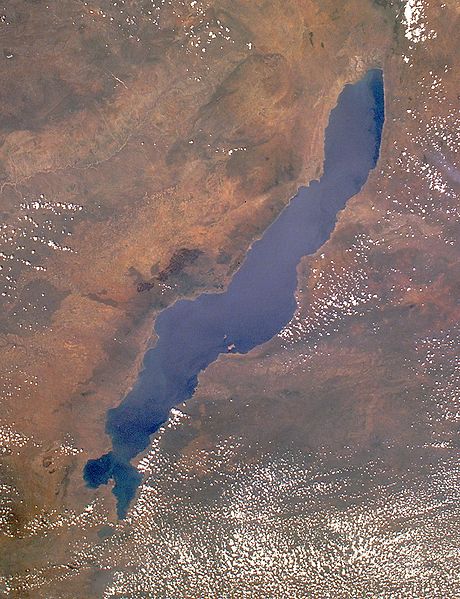Example reading responses (and an interesting thing about lakes)
Here are the questions I’ve posed to my students this week.
Based on what you have read and your pre-existing hydrologic knowledge, answer the following questions.
- What is one thing you learned that you thought was particularly interesting or important, and why?
- What is one thing that you would like more help understanding?
And here are a range of responses I could have written about my own reading on Lake Malawi.
For the first question:
Excellent Answer (fulll credit): “I learned that Lake Malawi is the fourth largest lake in the world by volume, and that it was formed by the East African Rift. Lake Malawi is more than 560 km long, but only 75 km wide. It averages almost 300 m deep, and its deepest point is 706 m. This sort of shape and bathymetry are direct results of the rifting process. This got me interested in what the other really big lakes are and whether they are rift lakes too, so I went to Wikipedia and found a list of the largest lakes in the world by volume. The biggest five (Baikal, Tanganyika, Superior, Malawi and Vostok) are all a result of active or failed rifting. Other large lakes on the list seem to be related to glacial erosion (e.g., Michigan (#6) and Huron (#7)). I think this is particularly interesting because it suggests that parts of the world without a history of rifting or glaciation don’t have access to the large volume of freshwater stored in very big lakes. This probably makes a difference in the hydrology and regional climate and may affect the way societies have developed in different areas.”
Very Good Answer (full credit): “I learned that Lake Malawi is the fourth largest lake in the world by volume, and that it was formed by the East African Rift. Lake Malawi is more than 560 km long, but only 75 km wide. It averages almost 300 m deep, and its deepest point is 706 m. On the map, it didn’t seem to cover as big an area as some other African lakes. I thought that was really interesting because I had no idea it was such a big lake. I realize now that lakes that have large surface areas might not have large volumes, if they are shallow and lakes that have smaller surface areas might be really big, if they are deep.”
OK Answer (some credit): “I learned that Lake Malawi is the fourth largest lake in the world by volume, and that it was formed by the East African Rift. I thought that was really interesting because I had no idea it was such a big lake.”
Not So Good Answer (little credit): “I learned that Lake Malawi is the fourth largest lake in the world by volume, and that it was formed by the East African Rift.”
For the second question:
Good Answer (full credit): “I read that Lake Malawi is formed from three half grabens. I understand that when you have extensional forces and down drop a block, you get a graben. But I need help understanding how you can get half grabens and how that might affect the history of the lake.”
(I like this sort of answer because it tells me where the question has come from, what part of the difficult material is already understood, where the difficulty lies, and why the student thinks the understanding is important.)
OK answer (some credit): “Half grabens.”
(Sure, they’re a bit confusing. But why do you want help understanding them?)
Unacceptable answer (little credit): “I understood everything in the reading.”
(This is unacceptable because there is always more to learn and it exhibits lack of intellectual curiosity about the material.)
By the way, Lake Malawi and the surrounding region is fascinating.

